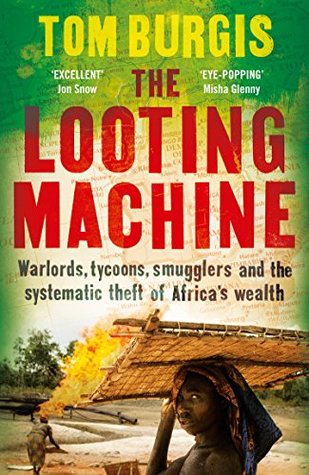More on this book
Kindle Notes & Highlights
by
Tom Burgis
Read between
July 5 - August 25, 2019
Analysts at the consultancy McKinsey have calculated that 69 per cent of people in extreme poverty live in countries where oil, gas and minerals play a dominant role in the economy and that average incomes in those countries are overwhelmingly below the global average.
In Zambia and Congo, whose shared border bisects Africa’s copperbelt, the extreme poverty rate is 75 per cent and 88 per cent, respectively.
At extreme levels the contract between rulers and the ruled breaks down because the ruling class does not need to tax the people to fund the government – so it has no need of their consent.
Africa accounts for 13 per cent of the world’s population and just 2 per cent of its cumulative gross domestic product, but it is the repository of 15 per cent of the planet’s crude oil reserves, 40 per cent of its gold and 80 per cent of its platinum
In 2010 fuel and mineral exports from Africa were worth $333 billion, more than seven times the value of the aid that went in the opposite direction (and that is before you factor in the vast sums spirited out of the continent through corruption and tax fiddles).
Perhaps half of the coltan that for years Rwanda exported as its own was actually Congolese.
The best estimate, calculated by Kofi Annan’s Africa Progress Panel, puts the losses to the Congolese state from SMKK and four other such deals at $1.36 billion between 2010 and 2012.73 Based on that estimate, Congo lost more money from these deals alone than it received in humanitarian aid over the same period.
Between 2007 and 2012 just 2.5 per cent of the $41 billion that the mining industry generated in Congo flowed into the country’s meagre budget.
During the war UN investigators described companies trading minerals as ‘the engine of the conflict’.
Nigeria may be the largest source of African energy exports, but it generates only enough electricity to power one toaster for every forty-four of its own people.
The disease enters a country through its currency. The dollars that pay for exported hydrocarbons, minerals, ores and gems push up the value of the local currency. Imports become cheaper relative to locally made products, undercutting homegrown enterprises.
without taxation, there is no representation. Not being funded by the people, the rulers of resource states are not beholden to them.
Between the early 1990s and 2010 China’s share of world consumption of refined metals went from 5 per cent to 45 per cent, and oil consumption increased fivefold over the same period to a level second only to the United States.
Simon Mann, an alumnus of Eton and the Scots Guards, went in search of oil revenues in Angola and diamonds in Sierra Leone at the head of a pack of mercenaries and staged a botched attempt at a coup in the tiny petro-state of Equatorial Guinea.
When China sneezes, Africa catches cold.


